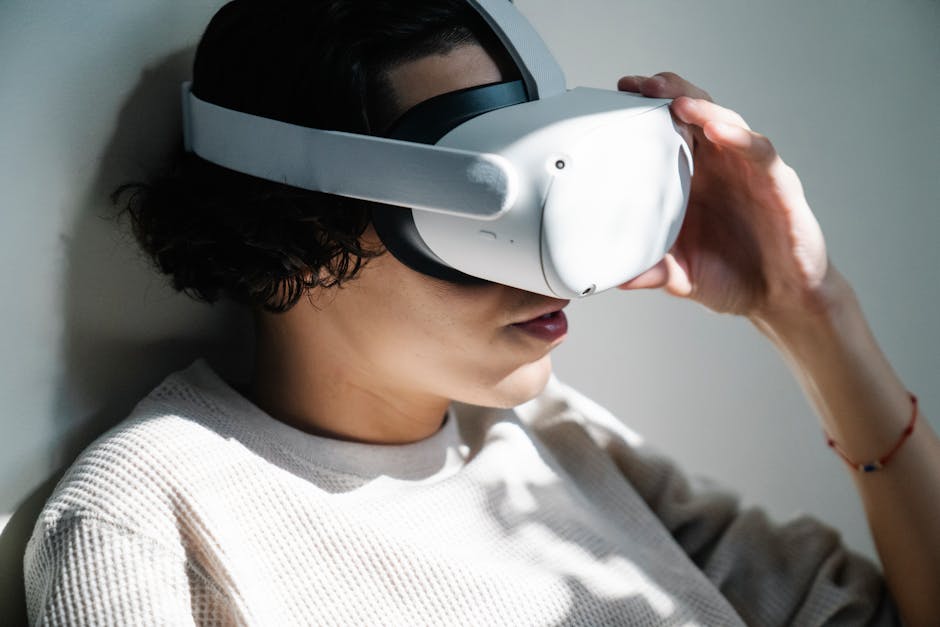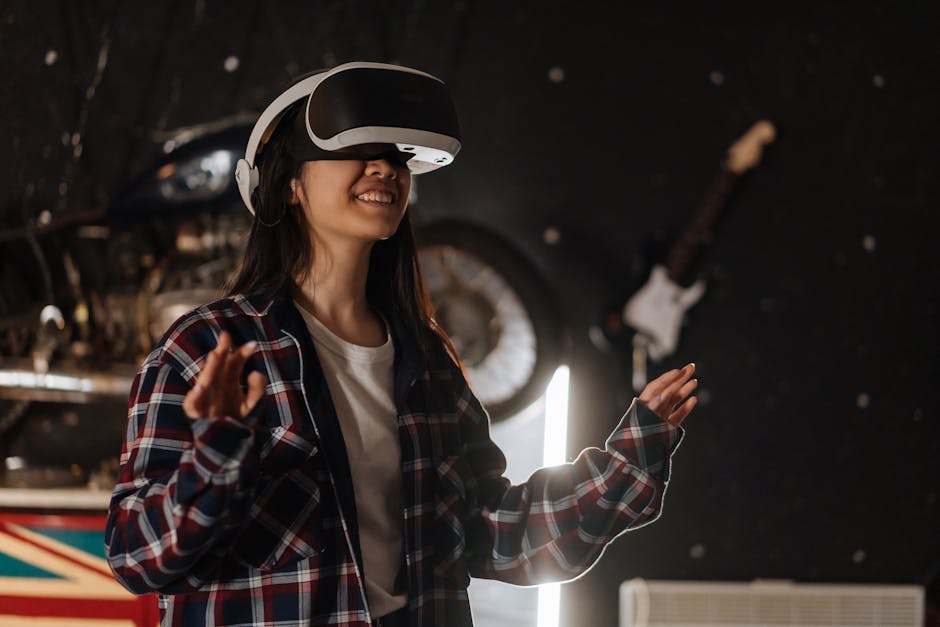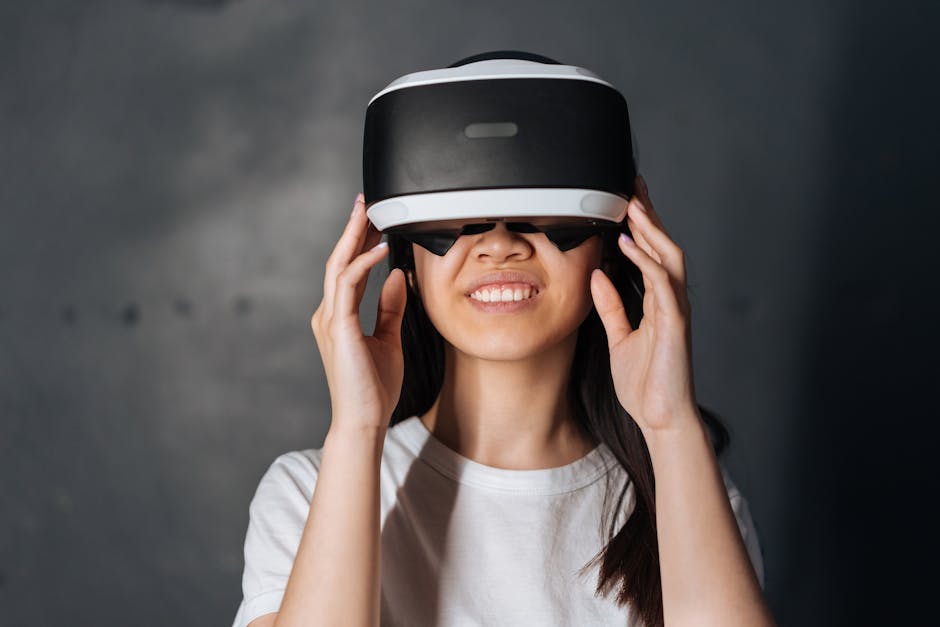The Rise of Virtual Reality in Entertainment
Virtual reality (VR) technology has taken the world by storm, revolutionizing the entertainment industry in ways previously unimaginable. As this cutting-edge technology continues to evolve and expand its reach, it is reshaping how we experience entertainment across various platforms. From immersive gaming experiences to virtual concerts and interactive storytelling, the rise of virtual reality in entertainment is changing the game.
Evolution of Virtual Reality

Virtual reality has come a long way since its inception, with roots dating back to the mid-20th century. The concept of VR was first introduced in science fiction literature, gradually making its way into the realm of technology. In the 1980s and 1990s, VR gained traction in the gaming industry, offering rudimentary experiences that laid the foundation for what was to come.
Fast forward to the present day, and virtual reality has become a mainstream phenomenon, with major tech companies investing heavily in its development. The introduction of high-quality VR headsets, motion-tracking sensors, and advanced graphics capabilities has elevated the immersive experience to new heights. Today, VR is not just limited to gaming but has expanded its presence in various forms of entertainment, including movies, music, and live events.
Applications of Virtual Reality in Entertainment

The applications of virtual reality in entertainment are vast and diverse, offering a range of experiences that cater to different interests and preferences. One of the most prominent uses of VR is in gaming, where players can immerse themselves in lifelike environments and interact with virtual worlds in ways never before possible. Games like “Beat Saber” and “Half-Life: Alyx” have garnered critical acclaim for their innovative use of VR technology.
Besides gaming, virtual reality has also made significant strides in the film and television industry. Filmmakers are now exploring the possibilities of creating immersive VR experiences that transport viewers into the heart of the story. Virtual reality films like “Invasion!” and “Dear Angelica” have showcased the potential of this medium in storytelling, blurring the lines between cinema and interactive entertainment.
Music enthusiasts have also embraced virtual reality as a new way to experience live concerts and performances. Artists like The Weeknd and Billie Eilish have hosted virtual concerts that allow fans to attend shows from the comfort of their homes, complete with 360-degree views and interactive elements. Virtual reality has proven to be a game-changer in the music industry, offering a unique and engaging way to connect with audiences.
The Future of Virtual Reality in Entertainment

Looking ahead, the future of virtual reality in entertainment is filled with endless possibilities and opportunities for growth. As technology continues to advance, we can expect to see even more innovative uses of VR in various forms of entertainment. From theme park attractions to educational experiences, virtual reality is poised to revolutionize how we engage with content and narratives.
Augmented reality (AR) is another emerging trend that is closely related to virtual reality, offering a blend of the physical and digital worlds. AR technology has the potential to transform entertainment experiences by overlaying digital elements onto the real world, creating interactive and immersive experiences for users. From location-based AR games to AR-enhanced live events, the possibilities are endless.
Challenges and Controversies in Virtual Reality

Despite its many advantages, virtual reality in entertainment also faces challenges and controversies that need to be addressed. One of the main concerns is the issue of accessibility, as VR technology can be costly and require specialized equipment to experience fully. This barrier to entry may limit the reach of VR experiences and prevent certain audiences from enjoying its benefits.
Privacy and ethical considerations are another area of concern when it comes to virtual reality, as the collection of user data and the potential for misuse of personal information raise important questions about data security and consent. As VR technology becomes more integrated into our daily lives, ensuring the protection of user privacy will be crucial for maintaining trust and transparency in the industry.
Common Misconceptions About Virtual Reality
There are several common misconceptions about virtual reality that can hinder its adoption and acceptance in the entertainment industry. One of the most prevalent myths is that VR is solely for gamers, overlooking its potential applications in other areas such as education, healthcare, and social interaction. By dispelling these misconceptions and highlighting the versatility of VR technology, we can broaden its appeal and reach a wider audience.
Conclusion
In conclusion, the rise of virtual reality in entertainment represents a transformative shift in how we experience and engage with content. From immersive gaming experiences to virtual concerts and interactive storytelling, VR technology has opened up new possibilities for creators and audiences alike. As we continue to explore the potential of virtual reality in entertainment, we must also address the challenges and controversies that come with it, ensuring that this revolutionary technology is accessible, ethical, and inclusive.
Virtual reality is not just a passing fad but a fundamental change in how we interact with the world around us. By embracing the power of VR technology, we can unlock a new era of entertainment that blurs the lines between the physical and digital realms, creating experiences that are truly immersive, engaging, and unforgettable.




